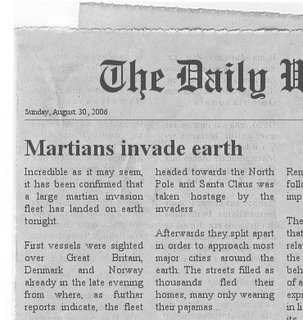 What an odd time the past month has been for the denizens of our Pacific Northwest. Mother Nature has shown us all how vulnerable we are, and we are just beginning to realize what a tragedy we would face in case of a real catastrophe, such as a major earthquake. As we lost our power (and light and heat) for only 48 hours, it wasn’t much of a hardship for a Finn who spent two months every year during his childhood in a primitive summer cottage with no comforts whatsoever. It was somewhat lonely though, as other family members preferred being with friends who hadn’t lost their electricity, or at the workplace. I stayed home mainly because of our cat, and kept two fireplaces going with logs that were so wet from November’s rain that every new one started boiling when first added to the fire. We were among the lucky ones as others had to put up with the discomforts of cold and darkness for much longer. Needless to say, one cannot teach under those conditions, and the combination of snow, ice and freezing temperatures of the last week in November with this nearly hurricane-strength storm meant a loss of about 30 lessons. It would have been a great time to have taken a vacation, but nature seldom gives us mortals advance notice. Perhaps this was good since flying back home from Europe might have been next to impossible as London, Denver and other airports had to close down for many days because of their own weather problems.
What an odd time the past month has been for the denizens of our Pacific Northwest. Mother Nature has shown us all how vulnerable we are, and we are just beginning to realize what a tragedy we would face in case of a real catastrophe, such as a major earthquake. As we lost our power (and light and heat) for only 48 hours, it wasn’t much of a hardship for a Finn who spent two months every year during his childhood in a primitive summer cottage with no comforts whatsoever. It was somewhat lonely though, as other family members preferred being with friends who hadn’t lost their electricity, or at the workplace. I stayed home mainly because of our cat, and kept two fireplaces going with logs that were so wet from November’s rain that every new one started boiling when first added to the fire. We were among the lucky ones as others had to put up with the discomforts of cold and darkness for much longer. Needless to say, one cannot teach under those conditions, and the combination of snow, ice and freezing temperatures of the last week in November with this nearly hurricane-strength storm meant a loss of about 30 lessons. It would have been a great time to have taken a vacation, but nature seldom gives us mortals advance notice. Perhaps this was good since flying back home from Europe might have been next to impossible as London, Denver and other airports had to close down for many days because of their own weather problems.Today is Christmas Day. We had a nice gathering of family and a more modest exchange of gifts than usual last night, as the custom is in my native country. I’m proud of the fact that this year I didn’t go to a mall even once, or even downtown for holiday shopping. Therefore I was able to avoid the ‘Nightmare before Christmas’, crowds at shopping centers and all the Xmas carols forced upon every shopper. People become noticeably more aggressive at this time, which is evident even on the road. Petty crime increases as well. My little one had her new iPod stolen from her backpack during a math class, and my eldest was a victim of another thief who emptied her wallet and stole her cell phone. This is true American holiday spirit for some. Yet I hope that everyone deserving got nice presents and the mean ones their lump of coal in one form or another. Those of us that celebrated Hanukkah, the good children and child-minded grownups hopefully got their share of shiny gelt, and the mean ones in turn felt the Hanukkah guilt. I know quite a few who belong in the latter category.
True presents are not something bought with money. My youngest daughter wrote all of us the sweetest personal letter that was included with her other little but meaningful gifts. The next one up learned about getting a 4.0 average this quarter in her college and being on the Dean’s list, in spite of having taken a most demanding course load, including two senior seminars. What could be a better present to a parent? Emails and other greetings from all corners of the globe have brought warmth to my heart, as did a surprise phone call from a dear friend in Sweden this morning. Preparing a traditional Finnish holiday meal was also a wonderful gesture from my eldest daughter.
Going through an old address book a few days ago made me realize how many friends and family members have left us in recent years. With an electronic database those entries are easy to delete but nothing removes an address and phone number written in ink. There are also those who are seriously, perhaps terminally ill, and might not be with us a year from now. Add to that people who, although living, are as good as dead in our minds, except that we don’t have any nice memories of them, unlike people we have loved. We often take health for granted until something goes wrong. Cancer, arthritis, diabetes and other physical illnesses are hard to cope with, but we must not forget all those of us whose health problems are invisible, be it chronic pain, depression or other mental illness, or Alzheimer’s and other forms of dementia. Cancer often claims its victims in a matter of months from when it is diagnosed, but of course with today’s treatments many are allowed to live longer and sometimes are even cured. Mental illness, however, doesn’t really know cure, and at best a patient’s symptoms can be made manageable and quality of life improved. A century ago, a woman’s period was regarded as a sickness in







